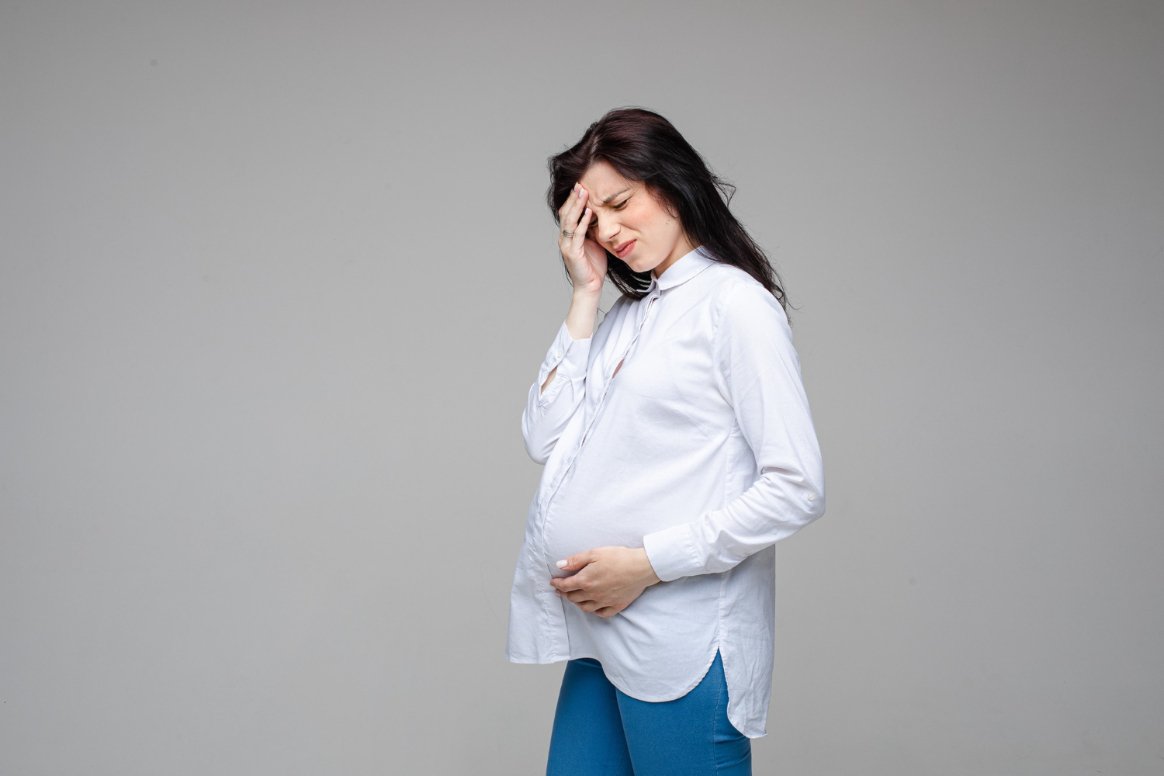
Moms mungkin pernah mendengar anggapan mengenai hamil kosong atau hamil yang tidak ada janinnya. Kondisi ini ternyata memang ada dalam dunia medis. Hamil kosong atau disebut blighted ovum merupakan kondisi ketika sel telur yang sudah dibuahi menempel pada janin, tetapi tidak berkembang menjadi embrio atau embrio gagal berkembang.
Pada beberapa kasus, embrio yang terbentuk berhenti tumbuh dan diserap kembali oleh tubuh ibu. Blighted ovum bisa menjadi penyebab mengapa wanita mengalami keguguran pada tiga bulan pertama kehamilan. Tanda-tanda awal hamil kosong pada umumnya mirip dengan tanda hamil normal. Seperti hasil test pack positif, mual dan muntah. Namun, pada hamil kosong, kehamilan tidak dapat berlanjut hingga melahirkan bayi. Jadi, hamil kosong pada akhirnya akan terjadi keguguran.
Kehamilan sendiri dimulai setelah terjadinya proses pembuahan. Normalnya, embrio akan terbentuk dalam waktu sekitar dua minggu setelah pembuahan. Lalu, diikuti dengan pembentukan kantung plasenta atau ketuban pada usia kehamilan sekitar 5-6 minggu. Tetapi, pada kondisi hamil kosong, baik embrio dan kantung plasenta tidak kunjung terbentuk sehingga tidak ditemukan janin dalam kandungan. Meskipun ibu yang mengalami kondisi ini telah mengalami tanda-tanda kehamilan normal seperti pada umumnya.
Tanda tanda hamil kosong
"Kehamilan kosong" adalah istilah yang digunakan untuk menggambarkan keadaan di mana seorang wanita memiliki tes kehamilan positif, tetapi pada saat pemeriksaan ultrasonografi tidak dapat mendeteksi janin yang berkembang dalam rahim. Ini dapat terjadi pada tahap-tahap awal kehamilan. Tanda-tanda hamil kosong termasuk:
Terlambat menstruasi
Salah satu tanda umum dari kehamilan adalah absennya menstruasi. Jika seorang wanita mengalami kehamilan, biasanya ia tidak akan mengalami menstruasi selama periode tersebut. Ini karena kehamilan menghentikan siklus menstruasi normal. Namun, ada pengecualian, seperti dalam kasus kehamilan kosong atau anembrionik, dimana tes kehamilan positif tetapi janin yang berkembang tidak ada dalam rahim. Wanita dengan kehamilan kosong masih mungkin mengalami pendarahan yang terkadang disalah artikan sebagai menstruasi ringan atau pendarahan implantasi.
Mual dan muntah
Beberapa wanita dengan kehamilan kosong atau kehamilan anembrionik masih mungkin mengalami mual dan muntah di awal kehamilan. Gejala ini sering disebut sebagai "morning sickness" atau mual pagi, meskipun mereka dapat terjadi kapan saja selama hari. Mual dan muntah adalah gejala umum yang sering terkait dengan awal kehamilan karena perubahan hormonal dalam tubuh. Ini berarti bahwa mual dan muntah bisa terjadi, bahkan jika tidak ada janin yang berkembang di dalam rahim (kehamilan kosong).
Hasil tes kehamilan positif
Pada kehamilan kosong, tes kehamilan positif tetap menunjukkan ketidakberhasilan untuk mendeteksi janin yang berkembang dalam rahim pada pemeriksaan ultrasonografi. Ini berarti bahwa embrio tidak berhasil mengimplan dengan benar atau tidak berkembang setelah implantasi. Pada kehamilan ini, gejala awal sering tetap ada, seperti tes kehamilan positif dan perubahan hormonal, tetapi tidak ada perkembangan janin yang normal.
Kram perut
Kram perut atau rasa tidak nyaman pada perut memang dapat menjadi salah satu tanda keguguran, termasuk keguguran yang disebabkan oleh kehamilan kosong. Namun, penting untuk diingat bahwa kram perut juga bisa muncul dalam berbagai situasi kehamilan atau kondisi lainnya. Kram perut dapat terjadi karena berbagai alasan, termasuk perubahan hormonal dan perubahan yang terjadi pada rahim selama kehamilan.
Payudara lebih sensitif
Perubahan pada payudara, termasuk peningkatan sensitivitas atau nyeri payudara, adalah gejala umum yang sering terkait dengan awal kehamilan, termasuk kehamilan normal dan kehamilan kosong (anembrionik). Peningkatan sensitivitas payudara adalah akibat perubahan hormon yang terjadi selama kehamilan, terutama peningkatan kadar hormon estrogen dan progesteron.
Keluar bercak darah
Perdarahan dan flek memang merupakan gejala yang sering terkait dengan keguguran, termasuk kehamilan kosong atau keguguran yang disebabkan oleh berbagai faktor. Perdarahan yang cukup banyak dapat terjadi bersamaan dengan flek pada beberapa kasus keguguran. Ini bisa berupa pendarahan yang mirip dengan menstruasi atau lebih ringan, tetapi dalam beberapa kasus, perdarahan dapat lebih banyak dan lebih serius.
Menstruasi yang lebih berat
Kehamilan kosong biasanya menyebabkan perdarahan yang lebih ringan atau perdarahan yang terjadi dalam jumlah yang lebih sedikit daripada menstruasi normal. Jadi, jika seorang wanita mengalami perdarahan yang lebih berat dari biasanya selama periode yang dianggap sebagai kehamilan awal, ini mungkin merupakan tanda adanya masalah atau keguguran.
Rasa sakit payudara menghilang
Nyeri atau sensitivitas pada payudara adalah salah satu gejala umum yang sering terkait dengan awal kehamilan, termasuk kehamilan normal. Namun, dalam kasus kehamilan kosong (anembrionik), di mana embrio tidak berkembang dalam rahim, gejala nyeri payudara menghilang dan tidak berlanjut atau bahkan menghilang seiring waktu.
Keputihan
Ciri ciri hamil kosong adalah keputihan saat mengandung. Keluarnya cairan dari vagina selama masa hamil mungkin merupakan tanda awal keguguran. Jadi, bisa menjadi pertanda bahwa janin dalam rahim tidak berkembang dan sudah waktunya bayi keluar dari rahim.
Kadar HCG Rendah
Kadar hormon kehamilan hCG (human chorionic gonadotropin) yang lebih rendah dari angka normal dapat menjadi tanda awal dari kehamilan kosong atau keguguran. Namun, penting untuk diingat bahwa hCG adalah hormon yang sangat bervariasi dari satu kehamilan ke kehamilan lainnya, dan setiap kehamilan berjalan dengan kecepatan yang berbeda.
Diagnosis Intrauterine Growth Restriction (IUGR)
Janin yang di dalam rahim berukuran lebih kecil dari ukuran normal bisa menjadi tanda kehamilan kosong atau masalah perkembangan janin yang disebut sebagai pertumbuhan janin terhenti (intrauterine growth restriction/IUGR). Kondisi ini dapat terjadi dalam berbagai situasi, termasuk dalam kasus kehamilan kosong.
Hasil USG abnormal
Salah satu tanda-tanda tidak jadi hamil adalah ketika USG menunjukkan kantung kehamilan yang lebih kecil yang tidak mengandung embrio atau janin yang berkembang. Kondisi ini juga dikenal sebagai "kantung kehamilan kosong." Dalam kasus ini, kantung kehamilan mungkin terlihat dalam gambaran USG, tetapi tidak ada embrio yang terdeteksi di dalamnya.
Penanganan Hamil Kosong
Penanganan kehamilan kosong akan bergantung pada berbagai faktor, termasuk usia kehamilan, gejala yang dialami, dan kondisi spesifik individu. Berikut adalah beberapa opsi penanganan yang mungkin diberikan oleh dokter kandungan dalam kasus kehamilan kosong:
Menunggu sisa jaringan luruh secara alami
Penanganan kehamilan kosong dengan menunggu terjadinya keguguran secara alami adalah salah satu opsi yang bisa dipertimbangkan. Dalam beberapa kasus, dokter kandungan mungkin merekomendasikan pendekatan ini, terutama jika tidak ada gejala atau risiko yang mendesak. Ini disebut sebagai "expectant management."
Proses ini melibatkan menunggu perkembangan alami di mana kehamilan kosong berakhir dengan keguguran tanpa campur tangan medis. Namun, ini bisa memerlukan waktu dan bisa menjadi pengalaman emosional yang menantang bagi individu yang terlibat.
Melakukan prosedur kuret
Dilatasi dan Kuretase (D&C) adalah prosedur bedah yang melibatkan pengangkatan isi rahim. Ini sering dilakukan jika kehamilan kosong tidak berjalan dengan baik atau jika ada risiko infeksi. D&C juga dapat membantu dalam mengkonfirmasi diagnosis kehamilan kosong.
Menggunakan obat-obatan
Menggunakan obat-obatan untuk membantu meluruhkan sisa-sisa jaringan calon janin yang tidak berkembang adalah salah satu opsi penanganan kehamilan kosong atau keguguran. Proses ini disebut sebagai "pengguguran medis" atau "pengguguran farmakologis."
Kesimpulan
Tanda-tanda kehamilan kosong tidak selalu terjadi dan juga dapat mirip dengan tanda-tanda kehamilan normal. Jika moms mengalami tanda-tanda tersebut, terutama jika moms memiliki riwayat kehamilan ektopik atau masalah reproduksi lainnya, sebaiknya segera berkonsultasi dengan dokter kandungan. Dokter akan melakukan pemeriksaan dan pemeriksaan ultrasonografi untuk memeriksa perkembangan kehamilan moms dan memastikan semuanya berjalan dengan baik. (Aq/MKK)







